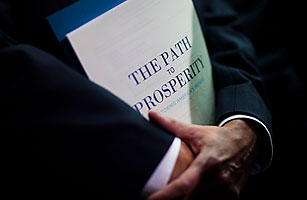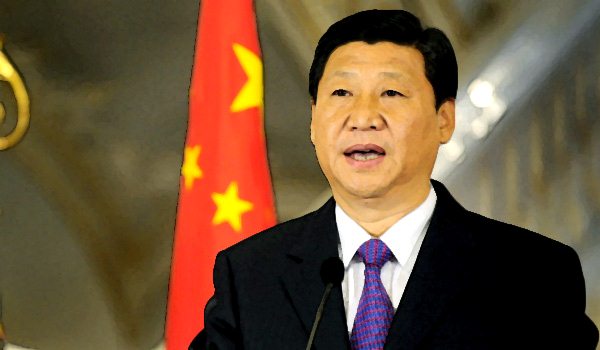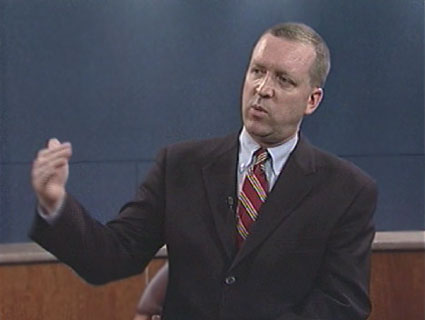 I'm a first year graduate student at Oxford studying Economic and Social History--a program that applies different social scientific frameworks to the study of history. I'm very interested in geopolitical analysis, and, as the first of my degree's two years draws to a close, I'm beginning to start looking at what might come next.
I'm a first year graduate student at Oxford studying Economic and Social History--a program that applies different social scientific frameworks to the study of history. I'm very interested in geopolitical analysis, and, as the first of my degree's two years draws to a close, I'm beginning to start looking at what might come next.
Zach Miller, head of the Oxford team competing in the Wikistrat grand strategy competition.
As Wikistrat starts collecting college/think thank teams for its grand strategy competition in June, certain requests come my way in terms of career advice. So here's my take on the general query above.
I can only advise on the basis of my experience, because I've made no study of the question. So naturally I'm going to be biased toward certain means and ends. I will also try to genericize this answer so it's not specifically just about US tracks.
In general, I advocate getting a PhD before leaving, and I don't advocate taking time off along the way. Why? Every bit of time off the academic track raises the possibility of never finishing, which happens to all sorts of people for all sorts of good reasons, the primary ones being marriage followed by kids and a decent enough living in a good job that you figure, "I really don't need to bother with the PhD." Later on, though, most people still regret this decision and wish they could have found (or still find) the time, but it's just too hard. Personally, I know I never would have gone back to finish, even though I suspect I might have been able to finish the dissertation on the side while working early in my career. It just would have been a killer on my marriage and made me a wholly absent husband (rehabbing that house was truly fun) and father (who wants to miss their first-born's life-and-death struggle with advanced cancer?) at a time when I would have regretted just as much as missing the PhD opportunity, so I'm glad I sequenced it.
If you can stay and get it done, it's so much faster and you get the experience in full, plus you get the side experience of teaching, which is great for teaching you basic skills of explanation and grading conceptual presentations. You also learn confidence in getting up in front of audiences. Overall, very much worth the effort.
But, if you're like me, you'll also need to work several other jobs while you finish the PhD (I was also a super for a large apartment building), and the juggling there is also worth mastering, because if you end up like I have, working out of my home office for a wide variety of organizations, you'll come close to having the same life dynamics.
I was able to get this process done during the first few years of my marriage (1-4), while my wife did her early career work (although she could have gone on in a vein similar to me and we could have pulled that off as well). Between us, living cheaply with no kids, we had plenty of disposable income, so we did a lot of fun things together that not only solidified the marriage, but smoothed the intense time of my writing a dissertation. It meant we put off kids until year 6, but we found that worthwhile to do too, so that our marriage was well-established by the time we started a family and I was completely done with school. Side issues, it may seem, but being unhappy in your life isn't worth a career track.
The two primary reasons to get the PhD are:
- You've got the union card, meaning you have the adjunct teaching option that much more easily obtained - if desired, and there may be some point where you actually want to go academic, like I did at the Naval War College - point being there are no glass ceilings to be confronted once you have the union card; and,
- It's just a great experience to write a book-length defensible piece of analytic worth. You will never get this duo of deeds in any other setting professionally. You can seek near-equivalents, but nothing quite like it, and I just think it's incredibly worthwhile to have that all under your belt before starting out.
After that, I think it's important to go to a good "finishing school," or a place of high analytic rigor that teaches you professional research and writing and presentational skills - before you do anything else. These skills in the real world are far different from those taught in academia, which really only prepares you to be an academic in terms of practical skills.
Private consulting firms can do this, but you really want to go a top one where there's tons of established talent, otherwise, you can easily end up being the "talent" yourself in a small shop, and there you will scramble to lead work without any real apprenticeship, so learning will be lost or achieved only under the most painful circumstances (shoulda, coulda, woulda).
My first job was with a very small shop and they were using my name and degree to try and win contracts, which was a sign of their small and desperate status. I was immediately thrust into work of a highly detailed and technical nature and I had no idea what I was doing. Two weeks in, a better offer came from a major analytic firm that worked for the navy and Marine Corps, and I jumped ship instantly, realizing the "finishing school" opportunity that was lacking in my small "beltway bandit" shop.
You can find such apprenticeships in think tanks, government research arms, etc. You just want to avoid the busy-work places that use up all your time in process (I wouldn't recommend the legislature right out for that reason) - if you want to build that intellectual infrastructure in your head. Fine to jump into process-heavy things later, but I suggest 4-6 years in a place like I described, learning the basics of professional research.
Once you've done that, then it's all a question of what you want to do and whom you want to do it with. You can go ideological with a think thank or go functional with foreign policy, foreign aid or defense. Personally, I think the latter two are more complex and unique and thus require the more direct experience. I think the foreign policy/State stuff can be picked up by moderate exposure, but the aid/defense stuff is more technically inaccessible from the outside, so some inside time is useful.
So that's what I did: working mostly directly with the military, and spending several years working with USAID. I always had interactions with State but I never put in the time there as either a direct hire or contractor. But if you want the 3D perspective, which I think is key, then you want to hit as many of those as possible, prioritizing the complex defense, then aid, then diplomacy. I think another reason why I felt most comfortable going light on diplomacy was that I was a political science major, so I had the most academic standing in that general field. So I guess I would say mix and match as per your academic trajectory.
Another reason why I focused on defense (which, frankly, surprised me afterwards because I had no intention of doing so while in school): most development is done by the private sector, so the aid stuff teaches you about failed/failing states but doesn't teach you all that much about what works outside that troubled realm. But defense, especially that practiced by the US, is truly unique, so understanding that reality helps a lot on the geostrategic thinking. A lot of experts think they can learn that from a distance, but I say no. Some direct exposure is required because it's a very closed - and close - tribe (which is why I don't necessarily advocate direct service in uniform, because a lot of minds never escape that thinking even as a few do so spectacularly - so again, know yourself).
Once I had those experiences in hand, I felt like I knew the government scene, but I felt rather slow on globalization-the-economic process. Yes, I had taken plenty of economics in college and grad school; I just didn't know business.
I have described my career journey as figuring out the world through the New York Times (my international relations PhD/academic experience) first, then figuring out Washington (via the Post) next (my time at Center for Naval Analyses), and then figuring out Wall Street/business through picking up the WS Journal/Financial Times/Economist and my time working with Cantor Fitzgerald (bond broker-dealer) while at the Naval War College and then my stint in Enterra Solutions since 2005. I had read all these papers all along; I just didn't "get" them in full until I has the associated experience to go with them, so it was my MSM equivalent of diplomacy (NYT), defense (WAPO) and development (WSJ/FT/Economist).
By the time I had gone through my stint in the Pentagon following 9/11, I was finally - at just over age 40 - operating at my full powers. I fully expected it would take that long, and never worried about keeping pace with others who did things earlier. I really wanted to do the apprenticeship route sufficiently so that when I really broke out my big ideas, they were truly big and representative of my journey versus stuff I just dreamed up and hoped would establish me. In John Boyd terms, I wanted to "do" before I took on the "be," and in truth, I am still focused on the "do" versus "be" and may very well end up sticking with the former my entire life, because I just so like the evolution mentally versus the "job," which I tend to fear for its numbing requirements. I also now realize I will only sacrifice so much for the "guru" track, in part because I find the media work such a creativity killer and I know that limits my reach. But you have to go with what makes you feel most creative, in my opinion, because, at the end of the day, that's all you've got. Jobs and profile come and go with tastes and forces beyond your control, but your creativity is THE asset worth protecting within your career. The global financial crisis actually helped me in this regard, by cutting back the speaking opportunities and forcing me back to more consulting/analysis, which I am finding tremendously renewing and easier on my family life - just when I needed it - because the travel is less hectic and I avoid being too much in broadcast mode. Not that I don't still love the speaking, because that is a favorite career addiction of mine and I'm gearing up right now for a slew of speeches in late April though early June. I just like this new balance better and - again - it came just in time family-wise.
But that's just me. Like my post to the OH student, I came to realize that I live for the ideas and the analysis more than the decision-making power. That may be because I'm the 8th of 9 kids and I wasn't raised to be the #1 son/daughter with "responsibility." But it's also why I'm so creative, something that's always created a certain amount of friction for me.
[Having said that, realize that everybody has their definitions of what constitutes "do" versus "be." It just depends on what you consider the "doing."]
Some of the best advice I ever got was from a legend in the technical means field by the name of Gary Federici. Gary was genius level on the subject of bureaucracies and struggles within them, and he was an eminent producer talent, meaning he knew how to assemble minds and exploit them. He told me early in my career that I was an amazingly creative thinker and that most people in most organizations would hate me for that ability, primarily because of its disruptive potential. So he advised me to chart a fairly self-reliant and independent course, because if I hoped organizations would elevate and reward me on that basis, I would end up a bitter old man. Gary was absolutely right, which is why I've spent my years since associating myself with Gary-type people - the more the better. My motto is the old Roman proverb: the slave with many masters is a free man.
So that's my basic advice on career tracking, with the following amendments:
- Never turn down a speaking opportunity.
- Always volunteer to be the main writer, because the power of the first draft, as I like to call it, is about 80 percent of the final product. Plus, just like with speaking, you only get better by doing.
- Always associate yourself with editors, because they are your best route to becoming a good writer, other than reading other good writers and practicing a lot yourself.
- Don't repeat your work if you can help it. If you want to think horizontally, then it must be new frontiers all the time - or as much of the time as possible.
- Associate with mentors who recognize your best skills, and avoid those who want to work on your weaknesses. Spending a life working on weaknesses is a loser track. Spending a life working on your strengths is a way to be magnificently happy - meaning successful in the way you like being successful versus somebody else's definition.
- Get good agents (and I use that term loosely) for all the skills you suck at. I have multiple and they all make me who I am. They are worth the money you pay them.
- Get married and have kids and put your family first, because you will likely live a very long life and this career will end, and when it does, and you're old, you will learn this truth: nobody ever lies on their death bed saying, I wish I accomplished more. They all say, I wish I treated my loved ones better. My wife puts it this way: Do not treat strangers better than your family. People who become addicted to their careers typically do that, and it leaves them standing alone in the end, and no career and no accomplishments are worth that tragedy, because you only have one life to live.
But again, my advice is for someone like me. I hate creative repetition in my work, but I love and am almost Zen-like in my desire to experience repetition in my personal life. So I accept a certain lone-wolf reality in my career as the price for my being an idea hamster, and I balance by having a very stable home life. I will take my kids, in succession, to many Packer games where it's just me and that kid on the long trek to Green Bay. None of them care about football. They want the same experience with me that I had going to baseball doubleheaders with my Dad at Milwaukee County Stadium (the Brewers). I work primarily to get the money that allows my home life to proceed as I believe it should. I live in a place like Indy for the same reasons (crappy for my career, great for my kids and family). Everybody makes choices and lives with the consequences. The only good career is one that reflects those choices and self-awareness. Otherwise you're 49, living in a condo in Reston, driving that red Miata convertible, hitting on interns half your age, and seeing your kids every other weekend. To me, that's hell on earth. To others, it's the reality they bumped into unconsciously as a result of being un-self-aware in their careers and just doing what was expected of them instead of what they truly desired.
But again, it all depends on what you fear/love more: I have zero fear of career disruption, and frankly enjoy the scary prospect of regular reinvention and lateral moves into entirely new circumstances. Other people think that's hell on earth, and will do whatever - personally - to keep the "career" on track. Me? I would -and routinely do - sacrifice career to keep the family as stable as possible (and to enable our continued growth in new kids , because that fulfills my spouse's life desire and I find it natural enough [coming as 8 of 9] and likewise useful in improving my thinking over time by exposing me to all sorts of unexpected things, like raising strong African-American women - not something I had put down on my bucket list per se!). [Note also my statement to the OH student: If you want to be a futurist in your thinking, you need to have kids - however achieved, because you need that forced life extension beyond your selfish self.] I would experience such a profound sense of failure if my family broke up, but I experience zero sense of failure over career troubles/challenges. Again, a lot of people in this world are the other way around nowadays, going through spouses and families. It's just about what you value. I simply know I could not be creative if my life was a mess. To be creative, I need to be in a very special place - what I define as "life safe." But "career safe"? I have no idea what that is because I've never achieved it or - as I now realize - sought it.
[And I will tell you that that last bit was very hard for me to achieve in self-awareness, because I am my mother's child and she grew up with a father like me and found it extremely upsetting because he was a highly creative, boisterous, addictive type who lived with very little career stability even as he provided good home stability despite his wife (my grandmother) dying while my mom was a teenager. So my mom, naturally, has spent her life with me preaching the exact opposite of the career I've chosen. All of my six siblings have lived careers primarily spent with big companies/government agencies, suffering the usual tumults there but never being the spread-out, highly independent actor I have been since '05, which she thinks is pretty nutty.]
In the end, being a strong thinker in the vein described here requires a tremendous amount of self-awareness, and you can't get that if you lose yourself in a career. You need a certain distance from life, however achieved, to obtain the clarity of view. To me, that's a better life but hardly the only life. It's "better" because it fits me, and it yields the career I find most exciting, coupled with the personal freedom I deem most crucial.
Also realize that I will answer this question differently in ten years. Maybe I make the f@#k-you money by then because my wife and I can only adopt so many kids before our age cancels us out (then again, she is already talking foster kids for the follow-on), and say the right candidate comes along (admittedly, he or she will more likely be Republican than Democrat, despite my voting habits) and I decide I want to retake the DC plunge. If I did, it would be a predictable-enough one: the 20-month stint before I must return home to prevent my family from imploding. Then again, there are so many fascinating business opportunities out there in emerging and frontier economies, that I might find the true "grand strategic" opportunities more there than in government (my current sense). Point being, my life rationalizations are always subject to review.
 Tuesday, April 12, 2011 at 12:02AM
Tuesday, April 12, 2011 at 12:02AM Much of the global perception of America's long-term decline as the world's sole surviving superpower is in fact driven by our fiscal decline. That's why I was disturbed to hear Democrats so quickly dismiss GOP Sen. Paul Ryan's bold, if flawed, federal budget proposal on the grounds that it would "end Medicare as we know it." Frankly, arresting our decline means ending a lot of things "as we know them." That's simply what being on an unsustainable path forces you to do.
 China,
China,  Europe,
Europe,  India,
India,  Japan,
Japan,  Russia,
Russia,  US,
US,  globalization | in
globalization | in  WPR Column |
WPR Column |  Email Article |
Email Article |  Permalink |
Permalink |  Print Article
Print Article 
















 Opportunities
Opportunities Risks
Risks Dependencies
Dependencies



